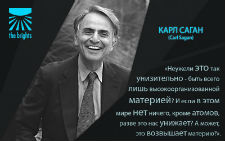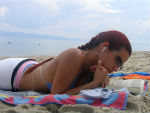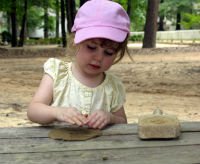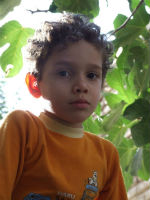The Brights' Bulletin
< Previous Issue | Next Issue >
Issue #130
(Note that links in archived Bulletin issues may no longer be valid.)
BRIGHTS BULLETIN -- MARCH 2014
|
Erecting Walls; Opening Horizons A recent addition in the “Budding Brights” segment of the website touches on issues of child rearing and education. Do we want to build walls that constrain thinking? In today’s world, there are many challenges to bringing up youngsters to be reasonable thinkers and considerate citizens. Check out this segment if you are a parent or guardian, or just someone who happens to have interest in the topic. |
| Back to top |
|
Mysterious Forces at Work? Many people who previously sang praises of Bitcoin are now singing the blues. The jury is out on the crypto-currency. Time will tell. Last month, in response to numerous requests, Brights Central made an arrangement with the BitPay payment service provider to enable The Brights’ Net to begin receiving donations in Bitcoins Interestingly, our BitPay link went up online almost simultaneously with Mt. Gox (the once-dominant trading platform for the crypto-currency) going down!
Sure, it’s simply a coincidence. Brights are not superstitious—Right? |
| Back to top |
|
Bitcoin’s Bumpy Road Until February, the most input on the topic Brights Central had received was in response to The Brights' Net's twice-a-year fund appeal letter sent out by BC at each Equinox. The comments came in along these lines: From Thomas, in Canada: From someone in the Armed Forces Europe: Most recently, regarding February’s free static cling offer, Adlai in Israel said: “I can cover the cost of postage in bitcoins; isn’t it time the Brights’ Network accepted Bitcoin donations?" Despite the bumpy road of late, the Brights’ Net now does accept the person-to-person (P2P) currency in addition to the usual methods. Consequently, contributing support in Bitcoins is an option for Adlai (or anyone), as can be seen on the Brights’ revised donation page with its new link: |
| Back to top |
|
Who Are Bitcoin-Boosting Brights? It's true for Adlai, or you: If you do decide to donate in Bitcoins, there's a bright spot for all who help to support the constituency of the Brights in that currency: we found, in investigating provider options, that The Brights’ Net’s "nonprofit organization" status made it eligible in some cases for a “no commission” agreement. We chose one of those providers. Thus: any amount a Bright contributes from a personal Bitcoin wallet comes through at 100% value (whatever that happens to be at the time). As we said, time will tell how Bitcoin holds up to regulated currency options. |
| Back to top |
|
Morality Reality
The overall thrust of the “Reality about Human Morality” project is to challenge the widespread presumption that ethical systems and morals are imparted to humankind by some form of divine being or power. Update on the Infographic (Team Report): To prepare for the launch, we've already updated the body of research knowledge that the scientific community has produced. It’s a lengthy bibliography! |
| Back to top |
|
Educating the Public (Russian Federation) Spurred on by concerns about the creeping clericalization that they see taking place in the country, Brights in Russia have been organizing via social media there. They call for action to counter intrusions that are happening even in higher education when, in “Russian science,” theology becomes a part of the curricular training of future scientists. Collaborating at the most popular social network there (Vkontakte), some participants are pursuing linguistic translations and generating products aimed to educate the broader public (most particularly about science).
These activists have been actively translating content (debates, TED talks, educational materials, etc.). The spokesperson, Evgeniy reports as an example a successful translation of the video "Storytelling of Science" (in The Great Debate, hosted by Origins project and Lawrence Krauss). They also aim to carry out projects and produce items of their own to confront directly the propagation of “a mindset which challenges well-established knowledge about nature, evolution, our origin and our place in the universe.” |
| Back to top |
|
From the International Forums Bucking a trend in cosmological apologetics, new forum member Bemafred arrived to contend against the notion that the universe came from nothing. “It was always something,” he claims. In fact, the whole notion of nothing is nonsense. Can there have been nothing? Is what there is now “something” while what was(n’t) before wasn’t? Meanwhile, new member Cloud has arrived from the Russian Chapter of the Zeitgeist Movement warning of intentions of Kirill, Patriarch of Russian Orthodox Church, that would indicate troubling developments affecting scientific education in the former USSR. Perhaps future new members among you also have news? Drop by the Forums and let us know! You’ll just need a brief registration if you have not contributed previously. |
| Back to top |
|
Insights from Brights BloggingBrights.net offers commentary on living life with a naturalistic worldview.
No doubt about it: “The Rational Woman” is a voracious reader. In her latest post, she shares views regarding recent material she has been devouring. There’s a novel with “a fresh take on the issue of chance vs. fate,” a “sweetly revealing memoir,” and a book that “tackles, with flair, a variety of issues related to free will.” (Interestingly, the last is a male novelist writing from a first person female point of view. |
| Back to top |
|
Indoctrinate – Educate |
|
Brights' Action Arena 2 Suppose you wish to shield youngsters as much as you can from cultural imposition of false understandings. Amidst all the popular but false assertions that swirl around, you’d most like youngsters to recognize and hold to what is verified. So, how can you act in support of “agreed-upon knowledge” and safeguard the children from bogus beliefs? Confronting Indefensible “Truths”
Beliefs in all sorts of supernatural entities and forces are widespread in society. (It’s not just abundant deity-belief and other mystical aspects of religion that challenge the emergence of a naturalistic outlook.) In view of the cultural influences, it’s not so easy to channel children away from the misleading and false and toward what is well substantiated. Parents who are Brights, having themselves gained experiences and information sufficient to dispute even the most popular New Age unrealities, will be alert to a great many false notions. Still, even the best-intentioned parents may need to think through how they craft their activities in response to unsubstantiated but popular assertions. One must be cautious, particularly as concerns complex subjects. Dodging Indoctrination Brights commonly say that they oppose indoctrination. They favor opening doors to children to learn from experiences instead. (Many parents who are Brights do not even wish to propagandize their own naturalistic worldview with their children. Or, at least they say as much.) But indoctrination can be elusive. It sometimes isn’t recognizable as such. One can indoctrinate in well-established knowledge as well as faith. Example: Urging a young child to espouse “belief in evolution” differs very little from instilling beliefs in entities or agency that are not supported by sound evidence. When children do not really comprehend, the youngsters simply go along with the stated expectations.
Is it only "people of faith" who teach children to voice notions that to them are nebulous? No. Secular parents can do that as well. Young children who say of their family “We believe in evolution” when they do not understand are like participants in a “tribe of evolution believers”. What is required for “education” involves a very gradual process of leading the learner to an actual understanding. This is true whether learning about evolutionary change or about science itself. Children, like adults, can learn to gain confidence in “what science says” through conducive experiences over time. Whether offered by schooling or by parents, building to genuine understanding requires provision of gradual small building blocks. To the extent possible, antecedent understandings related to science come from experiences that are directly and empirically focused. And this means factoring in readiness and age-appropriateness. |
| Back to top |
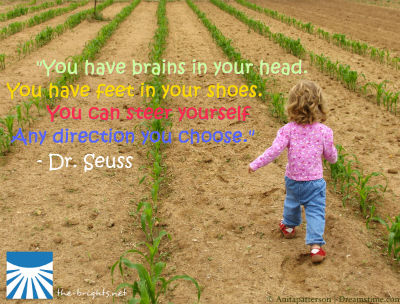
 No kidding!
No kidding!

